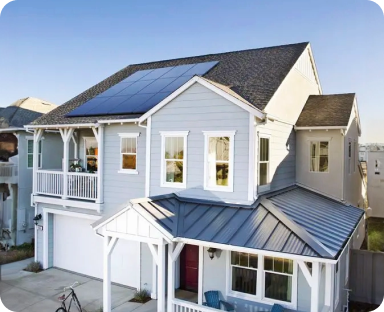
For the first time ever, gas has topped $5 on Long Island. Experts are unable to predict when, and if, gas prices will decrease. There isn’t an easy solution to avoiding high gas prices, and you may be wondering, should I make the switch to an EV?
Electric vehicles have come a long way since they were first invented in 1890. They say that history repeats itself, and during the gas crisis of the 1970s there was an increased interest in EVs. Despite the growing awareness, EVs did not take off, mostly due to the fact that they couldn’t go faster than 45 mph and had to be recharged after 40 miles. From the Tesla Model 3 to the Rivian truck, it’s clear that electric cars have come a long way.
If you’re at all thinking about investing in an EV, it’s important to educate yourself about how they work. We’ve compiled a list of FAQs to help you get started:
What is an electric vehicle and how does it work?
Simply put, electric cars run on electricity that’s stored in a battery. That electricity then powers the electric motor. These cars don’t use gasoline or diesel, and don’t produce any tailpipe pollution.
EVs can also be powered by renewable energy sources, like solar. As a result, this allows them to be virtually emission free. EmPower Solar can work with you to pair your EV with a home solar system, allowing you to become more energy independent.
What are the different kinds of electric vehicle chargers?
Just like there are different types of EVs, there are different types of chargers. Here is a brief overview:
| Charger Type | Time to Charge | Distance added per hour of charging |
| Level 1 | 8-16 Hours | 4 Miles per Hour |
| Level 2 | 6-8 Hours | 20-30 Miles per Hour |
| Level 3 | 20-45 Minutes | 40-50 Miles per Hour |
| Tesla V3 | 20 Minutes | 1,000 Miles per Hour |
How much does it cost to charge an EV?
Switching to an EV can be a big investment. You should consider all the costs you may encounter down the line, not just at the time of purchase. For example, if you’re wondering how much it will really cost to charge an EV compared to fueling a conventional gasoline-powered car, here’s a breakdown:
| Conventional Gasoline Vehicle | Electric Vehicle w/ Grid Power | Electric Vehicle w/ Solar Power |
| 12,000 miles per year | 12,000 miles per year | 12,000 miles per year |
| 25 miles per gallon | 3,000 kWh per year | 3,000 kWh per year |
| $4 per gallon | $0.21 per kWh | $0.21 per kWh |
| $0.16 per mile | $0.05 per mile | $0.03 per mile |
| $1,920 per year | $630 per year | $360 per year |
If you live on Long Island or in New York City, electricity costs 21 cents/kWh at your home. With solar panels, electricity can be as low as 8 cents/kWh. Generally, it is more expensive to use a public EV charger and can cost up to 50 cents/kwH.
As a result, it may be worth it to install an EV charging station at home. Typically, an EV charging system starts around $499, but total prices can vary from $300 to $1,000 depending on the charger and how much electrical work is needed.
What incentives are available for electric vehicle owners?
There are a variety of programs to help you make the switch from a gasoline-powered car to an EV, like a federal incentive that ranges from $2,500 to $7,500. New York State also offers a rebate for up to $2,000. You can also get 10% off your E-ZPass when you use an EV.
If you install a home charger, you can access even more incentives. Through PSEG LI, you can receive $500 after installing a 240-volt level 2 charger at your home. Additionally, ConEd customers can enroll in their SmartCharge program. EV owners will earn $150 the first time they charge their vehicle in ConEd’s service territory.
Now that summer is here, there’s an extra incentive from ConEd. Earn $20 every time you don’t charge your car during peak service hours, 2pm-6pm on weekdays from June through September. In addition, for each kWh of charging during off-peak hours (midnight to 8 am), you’ll earn 10 cents.
Where can I learn more about EVs?
You can check out our free EV guidebook to learn more!
EmPower Solar can help you electrify your life by adding a solar system + EV charger to your home. Contact us today for a free estimate.
Get an estimate for solar and claim your energy independence.

Get an estimate for solar and claim your energy independence.
About the Author
EmPower Solar develops, engineers, installs, and services solar and battery systems for residential and commercial clients. Since 2003, EmPower Solar has empowered thousands of New York homeowners and businesses with 47 megawatts of distributed solar. Its vision is to create a new energy paradigm powered by clean, renewable energy for a more prosperous, healthy, and civil world. The company culture is defined by the EmPowering Way, which results in consistent 5-star customer service reviews. For more information visit empower-solar.com.